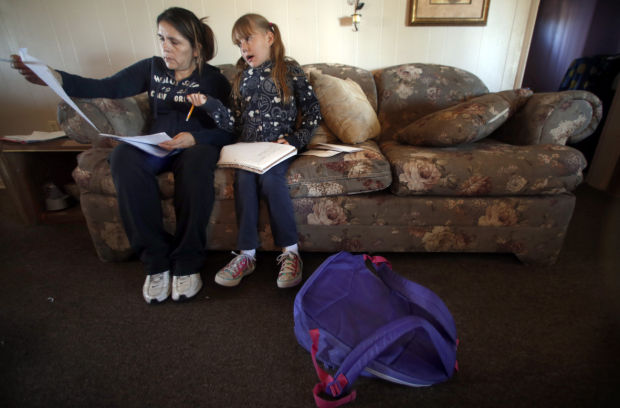Cristina Loya was stopped for speeding in May by an unmarked car that was in front of her as she pulled into the parking lot of her daughter’s high school.
She said she asked the Cochise County sheriff’s detective how he could tell she was speeding if he had been driving in front of her but didn’t get an answer.
Loya wonders whether the speeding charge was a way for the detective to check her immigration status.
She is not alone. About 6 in 10 Latinos surveyed by the University of Illinois at Chicago said they thought police officers stopped Latinos without good reason or cause “very or somewhat often.”
SB 1070, Arizona’s contested immigration law, requires that law-enforcement officers try to verify the status of someone they’ve detained if they suspect the person is in the country illegally.
But opponents of the law say it encourages “pretextual stops,” where officers find minor infractions to justify detaining someone for the purpose of an immigration check.
A Star review of more than 100 traffic-stop reports from five Southern Arizona agencies showed that the most common reason an officer stopped someone, and then checked his or her status, was speeding.
A problem with a license-plate light was the next most cited reason, followed by expired or suspended registration, failure to stop and an unsafe turn.
In some cases, especially close to the border, officers intercepted smugglers by following suspicious vehicles until they committed a traffic violation.
The review did not reveal evidence of systematic abuse, but a general lack of reporting details and the specifics of some stops raises questions. More than 15 percent of the Star’s sample of more detailed reports didn’t list the reason for the stop.
Most often, officers who explained why they called the Border Patrol pointed to a lack of a valid U.S. ID as a main factor.
When Loya saw the emergency lights start flashing, the 15-year resident of Douglas turned off the car and took out her Mexican driver’s license and border-crossing card. She said the detective saw her card was expired and told her: “You know you are not supposed to be here. I’m going to call Border Patrol.”
The incident-report narrative doesn’t include an address for the stop, nor does it mention the school. Some police agencies and Immigration and Customs Enforcement discourage immigration inquiries in school zones.
Cochise County Sheriff Mark Dannels did not answer questions about the case.
Loya’s daughters — the 14-year-old she was picking up from Douglas High School and a 9-year-old with her in the car — pleaded with the officer not to take their mother. But within minutes, another deputy arrived, followed by Border Patrol and a Child Protective Services employee who allowed Loya to sign a power of attorney giving temporary custody of her three children to church friends.
“I thought I was never going to see them again,” Loya said.
All three children are U.S. citizens; the youngest was fathered by a Border Patrol agent before he moved out of state to a new assignment.
Loya spent 20 days at the Eloy Detention Center before she posted bond. Her case is pending.





